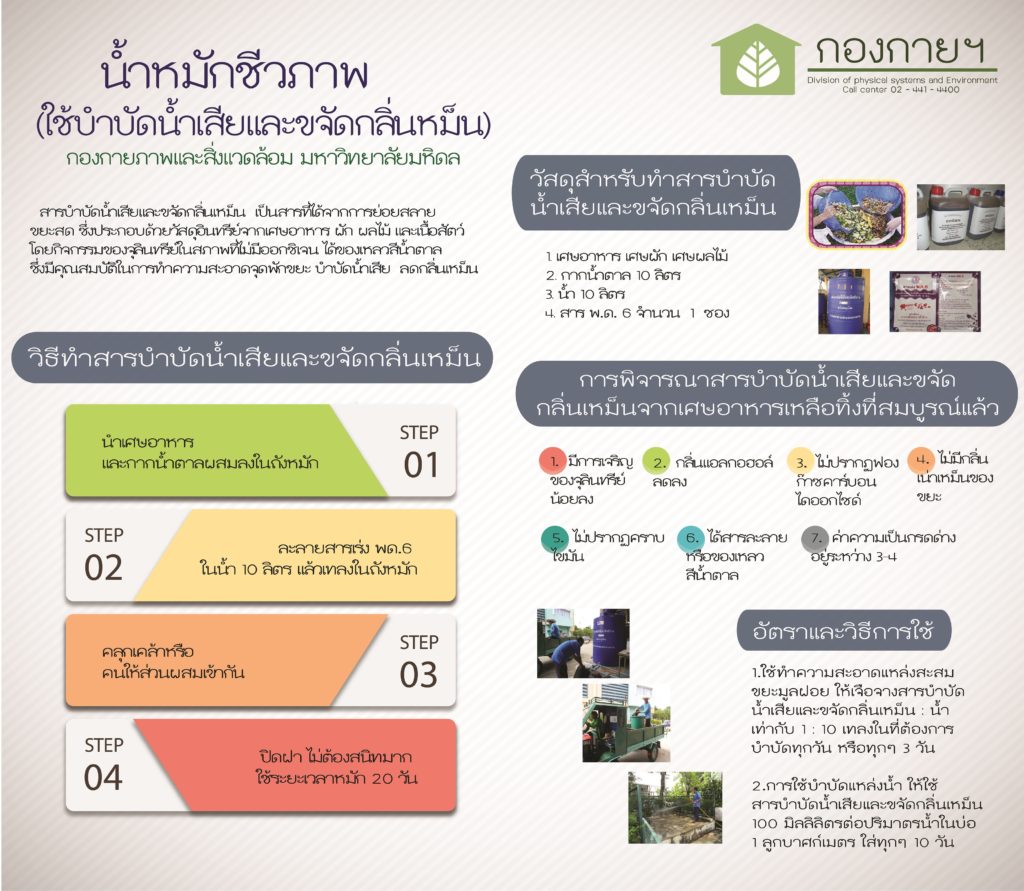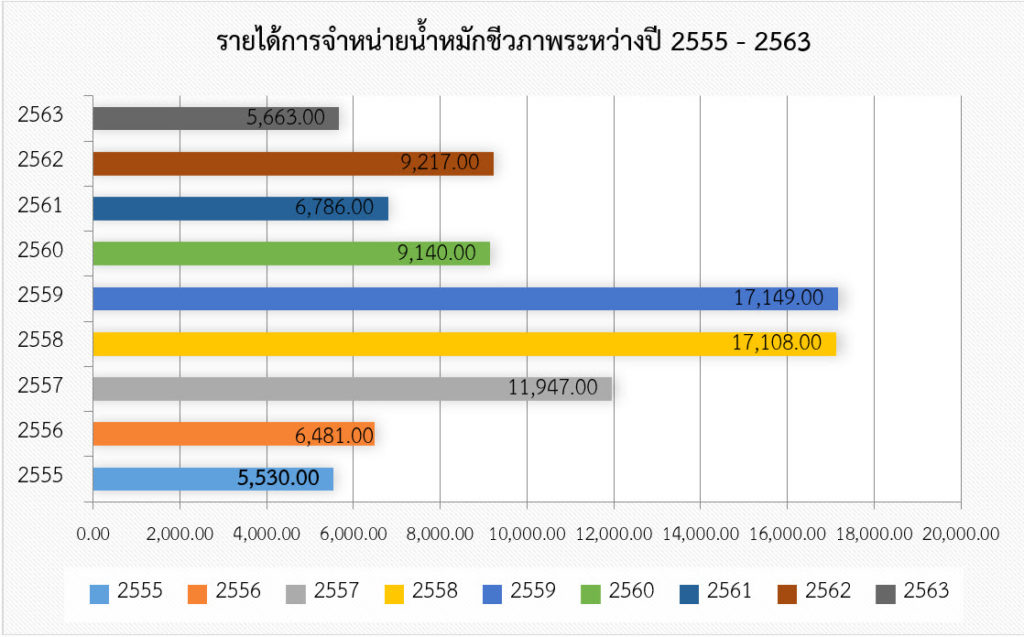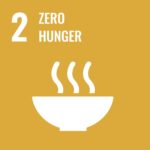EM Bio-Fertilizer Production Project
THINK CYCLE BANK
09/06/2023
มหาวิทยาลัยมหิดล ร่วมพิธีเปิดโครงการ “Green University ทิ้ง เทิร์น ให้โลกจำ”
19/07/2023EM Bio-Fertilizer Production Project
In 1974, Mahidol University developed its first master plan for area development, and it was revised in 1992. The campus has been influenced by many factors over the past few decades, including the external environment, the economy, society, roles, and the need for self-development, including the use of land to fulfill the missions of different faculties / institutions. Many problems were found to be present at the university. These included public utilities and infrastructure, traffic and parking, life and property safety system problems, landscaping and availability, sewage problems, flooding and drainage, garbage problems, stray dogs, etc. Therefore, the university implemented the “Clean and Clear” project in 2008 to remove scrap materials, clean empty spaces, and trim trees to make them more orderly and attractive.

In 2009, the university has organized “EM Bio-Fermentation Production Project” at the environmental conservation building in cooperation with the Electricity Generating Authority of Thailand in supporting tools and knowledge in the production of bio-fermented water. The goal of this project is for faculties, colleges, institutes, as well as students and staff to be able to separate organic waste from food waste, to reduce general waste contamination, and to recycle the organic waste through the fermentation process with molasses to help wastewater treatment process, get rid of bad odors from solid waste and restore the wasteland by using microorganisms to accelerate the decomposition of organic matters in the soil to keep the soil in good condition.
Currently, the project operation has been reshaped due to the obstacles in transporting food waste and composting. Therefore, food waste is collected and sold to farmers to feed pigs or fish through auctions, and the proceeds are brought to the Environmental Conservation Fund, Mahidol University. In order to produce bio-fermented water, EM (Effective Microorganisms) were combined with molasses and fermented for three days before being distributed to the general population.
This bio-fermented water is provided to the public for free, at a rate of 5 liters per person per day. If the specified amount is exceeded, an additional fee of 5 Baht per liter will be charged. The revenue from the extra charge will be transferred to the Mahidol University Environmental Conservation Activities Fund.
Revenue from the sales of bio-fermented water during 2012 – 2020


